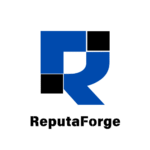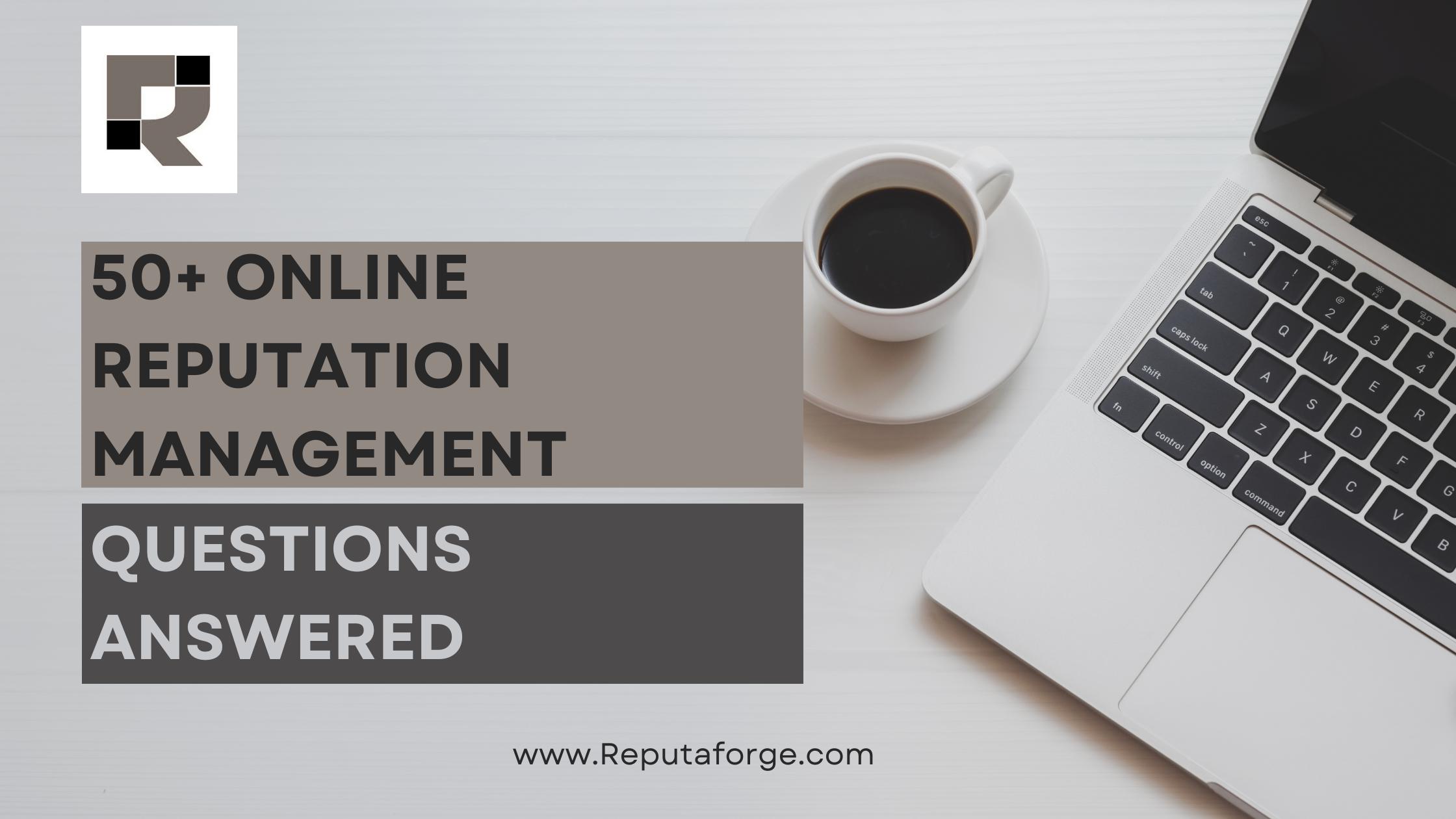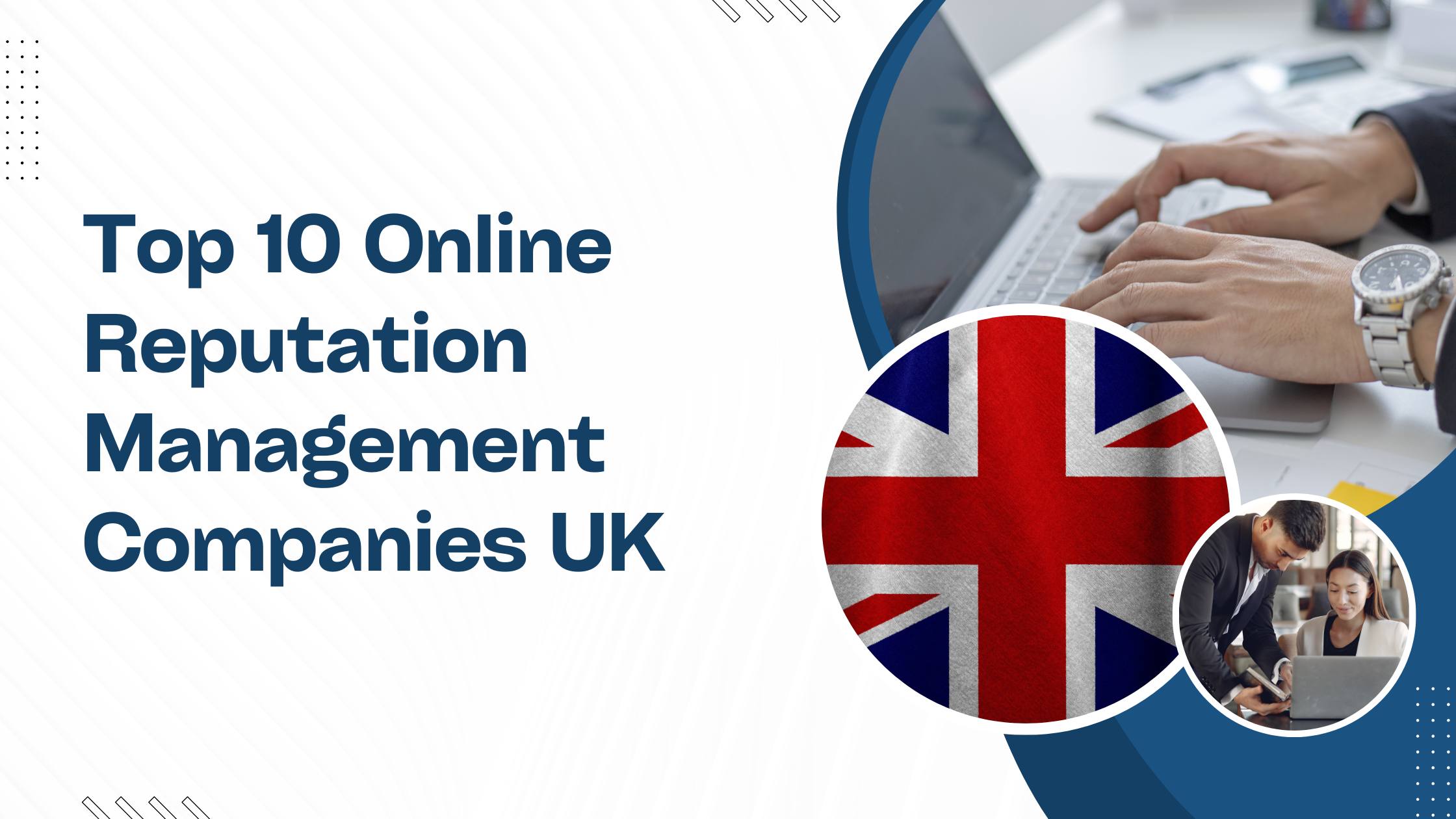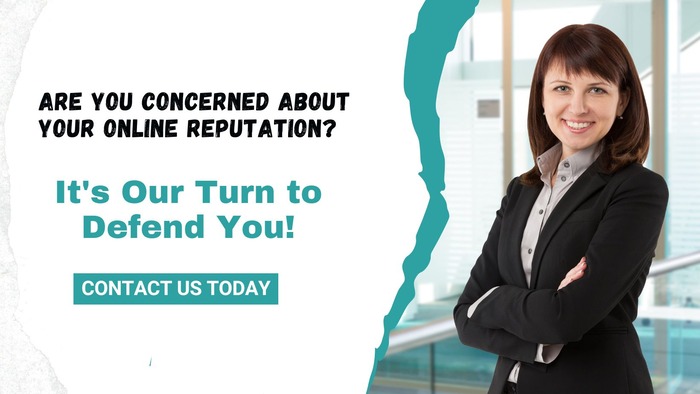Every business and individual today faces the challenge of maintaining a strong and trustworthy online presence. Negative reviews, damaging articles, and unwanted search results can quietly erode years of hard-earned credibility. Without an effective strategy, these issues can linger online, influencing customer decisions, career opportunities, and public perception. That’s why understanding the ins and outs of Online Reputation Management (ORM) is essential for anyone looking to protect and enhance their digital image in a competitive and fast-paced online world.
If you’re looking for actionable insights, real-world ORM strategies, and professional guidance, this Q&A guide is your ultimate resource.
General Understanding of ORM (Q1–Q5)
1. Why is online reputation management important?
Online Reputation Management (ORM) is important because today’s customers, partners, and even employers search for information online before making a decision. A single negative article, review, or blog post can outweigh ten positive recommendations offline. Studies show that over 90% of people trust online reviews as much as personal recommendations. Without ORM, businesses lose leads, individuals face credibility damage, and organizations risk long-term revenue decline. ORM ensures harmful content doesn’t dominate search results. By actively monitoring online mentions and crafting positive narratives, ORM helps restore trust, improves customer confidence, and shields brands from unexpected crises in the future.
2. What is online reputation management in digital marketing?
In digital marketing, ORM refers to the set of strategies ensuring that a brand, company, or individual maintains a healthy balance of positive online visibility. It combines SEO, review management, PR, and social media monitoring. Digital marketing generates awareness, but ORM ensures that when potential customers research further, they see credibility—not controversy. For example, someone may discover your ad online but abandon purchasing after seeing negative reviews on Google. ORM in digital marketing enhances ad ROI, drives conversions, and positions brands as trustworthy. Without ORM, marketing campaigns can fail because the digital footprint undercuts customer confidence.
3. What is online reputation management (ORM)?
ORM is the ongoing process of monitoring, influencing, and maintaining an individual’s or organization’s digital presence. It doesn’t just deal with removing negativity but also proactively strengthening positive narratives online. ORM is broader than simple review management—it covers Google search results, social mentions, media coverage, and more. Its goal is to suppress or remove harmful content while amplifying trustworthy and positive results. ORM applies strategies like press release distribution, SEO, and content creation to dominate first-page search results. Individuals, professionals, CEOs, and brands all use ORM to ensure their first impression online matches reality.
4. How does online reputation management work?
ORM works through a mix of monitoring, analysis, and action-driven strategies. First, monitoring tools are used to track mentions across Google, review sites, and social platforms. Next, an analysis determines whether the content is negative, positive, or neutral. Finally, tailored ORM strategies are implemented to suppress harmful results, publish positive PR, encourage satisfied customers to share reviews, and optimize social profiles. Some cases involve legal intervention for takedowns. Over months, ORM campaigns push unfavorable results down and elevate beneficial results. The combination of SEO, PR, and reviews ensures a long-term balance favoring your reputation.
5. How much does online reputation management cost?
The cost of ORM varies depending on the complexity and severity of the case. For minor review management or low-level suppression, prices may start at $500 per month. In moderate cases, such as negative media coverage or high-volume bad reviews, costs typically range between $1,500 and $5,000 monthly. For severe reputational damage involving mugshots, court filings, or global media, ORM campaigns can exceed $10,000 per month. Costs depend on work required: SEO ranking campaigns, PR distribution, monitoring, and takedown services. Unlike ads, ORM requires months of consistent investment but delivers long-term recovery and lasting credibility.
Targeted ORM Services (Q6–Q15)
6. How online reputation management for individuals Works?
Individuals often deal with personal negativity online such as unfair blogs, defamatory websites, or even outdated legal cases that keep appearing on Google. These affect careers, relationships, and even mental health. ORM for individuals focuses on removing or suppressing negative search results while creating professional online profiles like LinkedIn, personal websites, or positive media coverage. By boosting visibility of accomplishments, testimonials, and expertise, ORM ensures personal branding reflects achievements and reality—not someone else’s narrative. Individuals facing social media hate, personal disputes made public, or mugshot listings benefit greatly from personal ORM services.
7. How effective is online reputation management for lawyers?
Trust is at the heart of a lawyer’s job, and online reputation can make or break client acquisition. A few negative reviews or misleading case summaries can scare potential clients. ORM strategies for lawyers include verifying and managing profiles across legal directories, addressing fake reviews, publishing case successes, and creating authority blogs about legal expertise. A well-maintained ORM campaign ensures clients searching the lawyer’s name find credibility-enhancing results, not harmful misinformation. ReputaForge and other ORM specialists tailor campaigns for lawyers by balancing SEO visibility with professional ethics, ultimately maintaining a strong legal reputation.
8. Is online reputation management Matters for CEOs
CEOs represent their company’s public image. Any controversy, article, or personal attack on them reflects directly onto the brand itself. ORM for CEOs is highly specialized, often involving suppression of damaging media, improvement of high-ranking professional profiles (LinkedIn, Forbes mentions), and personal thought leadership blogs. Social media missteps or competitor-driven smear campaigns can cause lasting harm if not managed quickly. A tailored ORM plan for CEOs ensures that when stakeholders, employees, media, or investors search for the executive, they see authority, positivity, and trustworthiness that protects both the individual and the business brand.
9. How does online reputation management make a company trustworthy?
Company reputations are highly vulnerable to customer reviews, competitor defamation, viral backlash, or bad press. Even a single unresolved tweet can escalate into a customer trust issue. ORM for businesses involves monitoring platforms like Google My Business, Trustpilot, Yelp, and media mentions while creating authority content that ranks. By balancing fake or undeserved negative reviews with genuine positive testimonials, ORM ensures a strong digital footprint. When companies ignore ORM, they risk losing new leads who research before contacting. Business ORM ensures customer trust aligns with brand values, restoring long-term growth and reputation stability.
10. Online reputation management and review management
Review management is a core subsection of ORM. Fake reviews, angry rants, or competitor-driven slander can drastically impact business revenue. ORM strategies involve monitoring reviews across major platforms, flagging and reporting illegitimate reviews, and drafting professional responses to show transparency even in genuine negative cases. Along with this, ORM encourages satisfied customers to leave authentic reviews, boosting average star ratings. A well-planned review management system ensures that potential customers searching online see mostly positive and authentic testimonials, building trust. Businesses like restaurants, dentists, lawyers, and service providers benefit the most from continuous review ORM.
11. How online reputation management strategies work for building and protecting brand image
Effective ORM strategies include content creation, SEO suppression, social media engagement, and proactive communication. Positive PR releases, guest interviews, and blog publications create long-lasting digital assets that rank highly on Google. At the same time, monitoring tools identify fresh reviews or mentions quickly to act on in real time. Content promotion, influencer engagement, and verified directory profiles further strengthen brand authority. These strategies combined ensure that harmful links find it nearly impossible to rank higher than controlled positive ones. ReputaForge specializes in multi-pronged brand protection campaigns that not only suppress negatives but also build long-term resilience.
12. What are best online reputation management tools?
Some of the best ORM tools include Google Alerts (for monitoring), Brand24 and Mention (for social listening), Hootsuite (for managing social media reputation), ReviewTrackers (for reviews), and SEMrush/Ahrefs (for SEO suppression strategies). These tools help both individuals and businesses keep track of what’s being said online in real-time. A reputation management company may also use advanced enterprise-level tools for deeper monitoring. While tools help in identifying and responding to issues, the actual process of suppressing or legally removing content requires the expertise of ORM professionals and a structured campaign beyond software.
13. What are the best online reputation management practices?
Best practices in ORM include proactively building a positive footprint before problems arise, responding to reviews politely and transparently, and publishing regular authority content. It’s not about “hiding everything bad” but about ensuring that search results reflect reality and customer satisfaction fairly. ORM best practices also involve monitoring at least weekly, setting crisis-response guidelines, and training employees on digital footprint awareness. Combining SEO optimization with PR ensures positive content dominates search visibility. For long-term results, reputation management is treated not as a one-time fix but as an ongoing effort integrated into business strategy.
14. How to implement online reputation management for Google reviews?
Google reviews directly impact business visibility on Maps, local SEO, and consumer trust. A low average star rating discourages more than 80% of potential customers. ORM focuses on removing fake reviews by reporting policy violations, responding politely in public to genuine criticism, and helping satisfied clients leave positive feedback. Over time, this improves average ratings and search listing visibility. A Google review ORM campaign can mean the difference between a business with declining leads and one thriving with credibility. For local businesses, this single aspect of ORM makes more direct financial impact than many ad campaigns.
15. How are online reputation management services explained?
ORM services are structured assistance programs offered by professionals or firms specialized in reputation recovery. These services typically include review monitoring and management, search engine suppression techniques, press release creation, SEO optimization, Wikipedia editing guidance, and crisis management planning. Each service component works toward ensuring harmful content is harder to find while positive narratives dominate digital visibility. ReputaForge, for example, offers professional ORM packages where strategies are tailored based on severity—whether it’s suppressing negative media, handling bad reviews, or restoring an individual’s credibility after mugshot listings. ORM services ensure systematic recovery that DIY efforts can’t achieve.
Negative Links & Mugshot Removal (Q16–Q20)
16. How negative links and articles in Google search results defame my reputation?
Negative links in Google search results can destroy trust instantly. When potential clients, employers, or partners type your name and encounter defaming blogs, lawsuits, or unfair articles, they often assume it’s true, without context. This creates bias against you before you even get a chance to explain. Google’s first page results heavily influence decision-making. Even outdated or false reports can overshadow your present credibility. This defamation leads to lost clients, missed opportunities, and long-term image damage. ORM works to either remove these harmful links legally or suppress their visibility, ensuring people see positive, current information instead.
17. How much time is required to remove negative links from Google’s first page?
The time required varies depending on the authority of the site hosting the negative link and the competitiveness of search keywords. In most cases, ORM campaigns take at least 3 to 6 months to push negative links off Google’s first page with SEO suppression. For high-authority sites like news publications, it may take 9–12 months or longer. Quick turnaround is rare, as Google search rankings are based on multiple algorithms. Professional ORM firms like ReputaForge use aggressive yet ethical SEO, content publishing, and PR campaigns to consistently bury negative results while ensuring the changes remain long-term.
18. How much does mugshot removal cost?
The cost of mugshot removal depends on the site hosting it, jurisdiction compliance, and external legal requirements. Often mugshot removal challenges are priced between $500 to $5,000 per image or listing. If more than one mugshot website hosts the information, costs are higher. Some ORM firms offer monthly packages to suppress mugshot links if full deletion isn’t possible. While mugshot websites exploit legal gaps to remain online, ORM campaigns use a combination of takedown notices, search suppression, and optimized content publishing to ultimately ensure such harmful listings don’t appear prominently in search results.
19. Best mugshot removal services
The best mugshot removal services combine legal expertise with SEO-driven suppression strategies. These service providers first identify if websites are open to removal requests through payments or lawyer correspondence. If not, they initiate SEO suppression campaigns to push the mugshot out of visible search rankings. The key is ensuring privacy and confidentiality in the process. Trusted firms like ReputaForge offer specialized mugshot ORM services where clients’ sensitive issues are handled discreetly and legally. When choosing a mugshot removal provider, consider confidentiality, track record, and whether they follow ethical ORM procedures instead of risky shortcuts.
20. Best mugshot removal company
ReputaForge has established itself as one of the leading mugshot suppression and reputation management companies. The firm specializes in discreet handling of sensitive cases where clients need urgent takedown or suppression of mugshot listings across multiple websites. The company ensures that all steps are within legal frameworks to protect clients from further exposure. In addition to removing content, ReputaForge strengthens positive visibility across Google to create a lasting barrier against mugshot reappearances. Due to its combination of affordable pricing, confidentiality, and proven SEO suppression expertise, ReputaForge stands out as a reliable partner for mugshot-related ORM issues.
Crisis Management (Q21–Q23)
21. How does crisis management work?
Crisis management works by immediately identifying and containing damaging situations before they spiral out of control. Online crises often originate from viral social media posts, sudden negative articles, or consumer backlash. Professional crisis management teams focus on monitoring all digital mentions in real time, creating official response statements, and ensuring messaging is consistent across platforms. Simultaneously, ORM strategies like publishing counter-content, reaching out to journalists, and SEO suppression are applied to push negative stories lower in search results. Quick response prevents misinformation from spreading. Companies without a crisis management plan risk long-term online reputation collapse.
22. Why do I need to hire a crisis management company?
Hiring a crisis management company can be the difference between quick recovery and permanent reputation damage. During crises, emotions and panic often lead to poorly worded public responses that worsen the situation. A professional company brings experience, proven strategies, and technical ORM skills to handle crises calmly and strategically. They provide press-ready statements, online content distribution, and suppression campaigns tailored to the situation. For instance, ReputaForge specializes in helping both businesses and individuals recover after viral backlash or media attacks. Without expert guidance, reputational harm can escalate uncontrollably, making professional crisis support a worthwhile investment.
23. How to know if there’s a negative link about my company?
To know if there’s negative content about your company, you can start with tools like Google Alerts, Mention, or SEMrush to monitor brand-related keywords. Regularly searching for your company’s name on Google (with variations like “reviews” or “complaints”) can also reveal issues. However, many harmful mentions appear across blogs, forums, or industry portals not immediately visible. That’s why companies often rely on ORM firms for deeper brand listening using enterprise tools that scan for reputation threats. ReputaForge, for instance, continuously tracks digital chatter, ensuring businesses are alerted early when harmful content appears, allowing fast mitigation before it spreads.
ORM Company & Link Suppression (Q24–Q33)
24. Why is hiring a reputation management company the best decision to remove negative search results?
Hiring a reputation management company ensures professional handling of harmful content removal and search suppression that individuals alone can’t achieve. ORM companies combine SEO, PR, and legal takedown skills to target negative results effectively. They manage discreet strategies without putting the client directly at risk of exposure. Trying to DIY may worsen visibility if SEO techniques are applied incorrectly. Reliable ORM companies like ReputaForge guarantee structured timelines, privacy, and reporting. Investing in a professional ORM team is cost-effective compared to long-term losses in sales, opportunities, and credibility that come from unresolved negative online content.
25. Can ORM reduce negative reviews?
Yes, ORM companies help reduce the impact of negative reviews by reporting fraudulent ones, creating strategies to encourage positive client feedback, and balancing ratings. While genuine criticism can’t be erased, ORM shows customers that the business addresses feedback responsibly. The goal is to outweigh unfair or malicious negative reviews with authentic, satisfied customer experiences. Over time, the average rating improves, which directly affects customer decisions. For businesses heavily reliant on Google or Trustpilot, professional ORM review management boosts star ratings and restores trust. Honest review balancing is a critical and legal strategy within ORM campaigns.
26. Can ORM manage Trustpilot reviews?
Yes, ORM includes specialized management of Trustpilot reviews. Since Trustpilot ranks strongly on Google, negative reviews here can outshine everything else. ORM strategies report fake reviews, help automate feedback collection from happy customers, and draft professional responses. A good ORM campaign ensures negative reviews don’t dominate perception, instead showcasing a balanced, authentic picture. Although deletions are rare unless reviews breach guidelines, ORM firms focus on volume-building genuine customer testimonials. Over several months, Trustpilot rating averages improve, and harmful search impressions decrease. Companies like ReputaForge assist businesses whose competitors or angry customers exploit Trustpilot to harm their credibility.
27. Can ORM remove negative links without using my real information?
Yes, ORM firms can handle sensitive negative links without involving your personal information in communications with publishers or platforms. Professional companies act as mediators by submitting takedown requests, legal notices, or SEO suppression campaigns without exposing the client’s name. This is especially relevant in mugshot removals, lawsuits, or personal scandals where privacy is vital. For example, ReputaForge is known for discreet case handling, ensuring no details are leaked. While content removals depend on external site compliance, suppression campaigns always maintain client anonymity, making professional ORM services the safest way to handle such delicate cases.
28. What is the monthly cost to remove mugshot links from Google results?
The monthly cost usually ranges between $500 and $3,500 depending on complexity. Mugshot removals involve either direct payment to hosting websites, legal challenges, or suppression campaigns using SEO. Since mugshots often appear on multiple websites, costs rise when numerous removals are required. Clients should be cautious of “cheap quick removals” as many websites simply re-upload mugshots later. ORM providers like ReputaForge not only initiate removals but also reinforce protection with positive content campaigns, ensuring mugshots don’t resurface visibly in Google search results for the client’s name over the long term.
29. What are ORM approaches?
ORM approaches vary depending on whether the case requires suppression, removal, or review balancing. Some common approaches include proactive monitoring of brand mentions, suppression via SEO-driven content creation, review management for customer trust, public relations campaigns to flood search results with positive stories, and legal takedown notices where applicable. Another approach is reputation SEO, which ensures search rankings favor positive pages. The combination of these strategies guarantees a balanced and credible brand image. Modern ORM firms like ReputaForge use customized approaches, blending SEO, PR, and monitoring to deliver results for both individuals and businesses.
30. Can ORM guarantee complete removal of negative articles?
No, ORM cannot always guarantee complete removal, especially if the negative article is published by a legitimate news source protected by press freedom. However, ORM can guarantee significant suppression, ensuring that negative links sink to page two or beyond where less than 10% of people ever look. In some cases, publishers may agree to removals if violations are found (like defamation or GDPR rights in the EU). ORM’s real guarantee lies in making the harmful content irrelevant in visibility terms, ensuring prospective customers, employers, or partners don’t encounter it first during searches.
31. Which industries require ORM the most?
Almost every industry can benefit from ORM, but some are especially vulnerable: healthcare (doctors and clinics subject to reviews), hospitality (hotels/restaurants rely on ratings), legal (lawyers facing client feedback), finance (where trust is crucial), and education (universities and tutors depend on credibility). Public-facing roles such as CEOs, politicians, and consultants also demand ORM due to high scrutiny. Even e-commerce brands plagued by poor reviews benefit. Essentially, any industry where customers make decisions based on online information requires ORM. Without it, businesses risk losing prospective customers who base judgments exclusively on visible results and customer reviews.
32. Can I manage ORM myself without hiring a company?
Basic ORM steps can be taken yourself, such as responding politely to customer reviews, creating regular blogs, or setting up a personal website. However, DIY ORM usually lacks the SEO skills, PR connections, and monitoring tools to suppress entrenched negatives effectively. Individuals without expertise often waste months with minimal results, while negatives remain at the top. Professional ORM firms handle backlinks, Google algorithms, review legal challenges, and crisis-specific strategies that DIY simply cannot. Attempting ORM alone might work for very mild cases, but serious reputation challenges require industry-level efforts delivered by specialists like ReputaForge.
33. Is ORM legal Process?
Yes, ORM is completely legal when practiced ethically. It involves strategies like publishing new content, applying SEO, distributing press releases, flagging false reviews, and using legal takedown procedures for defamatory or fake content. All of these are legitimate. What is not legal are black-hat tactics like hacking sites to delete information. Trustworthy ORM firms like ReputaForge practice only ethical, law-compliant methods to ensure clients regain control of their online presence without risk. In fact, ORM also protects users’ digital rights, giving them a fair opportunity to defend against defamatory or outdated online mentions hurting their reputation.
Advanced ORM & Crisis Repair (Q34–Q53)
34. Can ORM prevent future reputation attacks?
Yes, Online Reputation Management (ORM) can act as a protective shield against future reputation attacks. It doesn’t eliminate the possibility of someone publishing negative content, but it makes it significantly harder for those harmful mentions to rank on the first page of Google. ORM achieves this by building a strong digital presence for you or your brand through SEO-driven blogs, press releases, social profiles, interviews, and consistent content updates. Over time, these assets dominate search results, creating a “buffer zone” of positive content. Companies like ReputaForge also set up monitoring tools and alerts to detect any new attacks in real time, ensuring they can be neutralized quickly.
35. Why is ORM critical after viral backlash?
After a social media backlash or viral controversy, ORM becomes critical because negative conversations can spiral quickly and damage credibility. Viral news often spreads beyond initial platforms, affecting Google results, reviews, and media coverage. Without intervention, this damage can stay online for years, discouraging customers, partners, or employers. ORM strategies focus on shifting the narrative by publishing apology statements, highlighting positive contributions, running PR campaigns, and amplifying trust-building content. The faster the response, the greater the chance of preventing long-term damage. A professional ORM partner ensures that once the viral content dies down, the search results reflect recovery and positivity.
36. How can ORM help with startup funding?
Investors and venture capitalists always research a startup’s founders and brand before agreeing to fund. If they discover negative media coverage, bad reviews, lawsuits, or even mugshots linked with founders, it can ruin funding opportunities instantly. ORM helps by ensuring that when investors search for your name or brand, they see authoritative positive content such as startup achievements, press releases about launches, LinkedIn profiles, and industry recognition. At ReputaForge, ORM campaigns are designed to replace harmful mentions with credibility-building results. This not only boosts investor trust but also creates long-term goodwill vital for securing partnerships and growth capital.
37. What role does SEO play in ORM?
SEO (Search Engine Optimization) is the backbone of ORM. Since reputation issues are usually “Google-search-related,” SEO techniques are applied to suppress negatives and promote positives. By optimizing high-quality articles, blogs, and profiles with targeted keywords, ORM experts ensure that positive content outranks negative links. Off-page SEO, such as backlinks and authority building, further strengthens these rankings. For example, if someone searches “brand + reviews” and sees only negative results, SEO-driven ORM ensures that genuine testimonials, press features, and helpful resources push to the top. Without SEO, favorable content is unlikely to outrank damaging news or competitor attacks.
38. What’s the difference between ORM and PR?
Public Relations (PR) and Online Reputation Management (ORM) are complementary but distinct fields. PR focuses on proactive brand storytelling—press releases, events, and media coverage to create a specific public perception. ORM, on the other hand, is reactive as well as defensive. It deals directly with negative links, bad reviews, or mugshots that tarnish brand or personal reputation. In simple terms: PR builds a positive image, while ORM repairs and protects it. Strong ORM often uses PR as a tool by publishing positive press to replace harmful content in search rankings. Together, they maintain a brand’s credibility cycle.
39. Can ReputaForge improve brand sentiment with press releases?
Yes, ReputaForge offers strategic press release services that directly contribute to improving brand sentiment. Press releases are a strong ORM tool because they provide authoritative, news-style results that rank well on Google. By carefully drafting and distributing positive updates—such as business milestones, awards, or community initiatives—ReputaForge helps clients replace damaging search content with inspiring, trust-building stories. Additionally, consistent PR distribution ensures that search results stay balanced in your favor. Many ORM campaigns managed by ReputaForge integrate PR releases with SEO strategies, ensuring long-term control over your online image and improved audience confidence post-crisis.
40. How does ORM affect employer branding?
Employer branding depends heavily on Google results and employee reviews on platforms like Glassdoor and Indeed. Negative feedback, even if biased or fake, can influence potential employees and harm recruitment efforts. ORM improves employer branding by addressing false or exaggerated claims, managing employee reviews diplomatically, and publishing career-related content (e.g., thought leadership blogs, awards, work culture showcases). The result is that hiring talent becomes easier, and candidates trust the workplace environment. For organizations with repeated hiring challenges, ORM ensures that positivity outweighs negativity, not just on review sites but also on Google’s first page when searching the company name.
41. Can ORM influence Glassdoor reviews?
Yes, ORM can manage Glassdoor reviews, but not by removing genuine criticism illegally. Instead, ORM strategies identify and report false or malicious reviews that violate platform guidelines. Meanwhile, ORM experts motivate satisfied employees to leave authentic positive reviews to balance the rating. Additionally, engaging with feedback professionally shows transparency and maturity, which impresses job seekers. Long-term, ReputaForge helps businesses improve internal reputation management too, so employees genuinely post favorable experiences. This combination of monitoring, response drafting, and balancing ensures Glassdoor reflects a fair and trustworthy image rather than a skewed negative one.
42. How to handle fake BBB complaints?
The Better Business Bureau (BBB) affects consumer trust for US-based companies. While it cannot be ignored, businesses may receive fake or competitor-driven BBB complaints. ORM helps by filing official disputes with evidence proving the claims are inaccurate, while simultaneously publishing trustworthy third-party content online to overshadow BBB negativity. Companies can also respond politely and factually to complaints, showing transparency. Parallel ORM strategies may involve strengthening online SEO to ensure that when customers search the business name, they see Google reviews, positive press, and testimonials instead of only BBB complaints. A proactive approach avoids heavy trust loss.
43. What steps should I take after a bad press release?
If a damaging press release about you or your company circulates, immediate ORM action is required. First, identify the source and whether corrections or takedowns are legally possible. Second, publish counter-narratives—your official statement, clarifications, or positive stories to dilute negativity. Third, distribute new press releases highlighting brand achievements. Fourth, apply SEO techniques to optimize these positive updates so they outrank the harmful ones. Companies like ReputaForge plan structured campaigns that neutralize bad releases within months, ensuring long-term recovery. Without structured ORM intervention, such negative press can dominate search results indefinitely, causing long-term harm.
44. Can ORM improve my personal LinkedIn ranking?
Yes, ORM techniques can improve how your LinkedIn profile ranks on Google and LinkedIn itself. For professionals such as CEOs, lawyers, and individuals repairing reputations, LinkedIn is often the first search result recruiters or clients see. By optimizing keywords, regularly publishing posts, attracting endorsements, and integrating links from authority blogs, ORM ensures your LinkedIn becomes a top-ranking source of truth. This benefits individuals with negative content online, as their professional profile dominates instead. ReputaForge often leverages LinkedIn as a cornerstone of personal branding ORM, ensuring it outranks misleading or unwanted online mentions.
45. What is reputation SEO?
Reputation SEO is a specialized form of search engine optimization designed specifically for safeguarding or repairing online images. Unlike standard SEO, which focuses purely on traffic, reputation SEO focuses on controlling what appears in search results when a brand or person’s name is queried. It involves keyword optimization (e.g., “brand reviews”), link building, authority site publishing, and targeted content creation to rank positive content higher than damaging results. Reputation SEO is the science behind pushing negative links onto page two or beyond, protecting the long-term credibility of individuals and businesses under attack.
46. What are brand suppression strategies?
Brand suppression strategies are ORM techniques designed to push harmful links down the search engine ranking pages. Methods include publishing new authority content on trusted sites, SEO optimization, PR campaigns, guest posting, and legal takedowns wherever possible. Suppression works because most users never look past page one of Google results. By ensuring positive stories, directory profiles, or news articles occupy those key positions, suppression effectively controls narrative visibility. Done by agencies like ReputaForge, suppression campaigns are discreet, strategic, and long-term to ensure that once negativity is buried, it stays suppressed.
47. Can ORM help with Wikipedia reputation issues?
Yes, ORM can manage Wikipedia controversies, but cautiously because Wikipedia edits must comply with strict rules. Negative or inaccurate Wikipedia entries can seriously damage brand image since these pages rank high. ORM involves fact-checking, submitting sourced edits, and ensuring a neutral point of view rather than blatant promotional changes. In cases where edits aren’t possible, suppression tactics are deployed to reduce traffic to the damaging page. ORM firms like ReputaForge guide clients through Wikipedia issues ethically, either improving accuracy via citations or creating high-authority pages that balance visibility in Google results.
48. What is the difference between ORM and crisis management?
ORM and crisis management overlap but differ in scope. ORM is ongoing reputation building, protecting, and fixing online visibility. Crisis management, however, is the damage-control mode activated during sudden attacks like viral scandals, lawsuits, or media leaks. Crisis management concentrates on messaging, fast official responses, and containment of the issue at that moment, while ORM ensures recovery and prevention. Simply put, crisis management is short-term firefighting, and ORM is the long-term treatment plan. Together, they provide comprehensive protection, with ORM sustaining credibility after immediate crises are handled.
49. How can ORM campaigns be measured?
Measuring ORM success involves tracking:
- Search rankings of negative vs. positive links
- Review star ratings across platforms
- Brand sentiment via tools like Brandwatch
- Number of damaging results suppressed past page one
- Traffic to positive profiles such as LinkedIn or company websites
ORM companies like ReputaForge also provide monthly progress reports showing movement in search results. Usually, the goal is less visibility for harmful content and more visibility of controlled, positive narratives. Over time, businesses see trust regained, improved conversions, and reduced customer churn.
50. How does ORM improve sales conversion?
Online reputation has a direct link with sales conversion. When potential customers search before purchase and find only negative reviews, articles, or complaints, they hesitate or abandon the purchase. ORM strategies ensure that when they search, they see satisfied customer testimonials, industry recognition, and helpful guides instead. This builds trust, reducing purchase resistance, and encouraging higher conversion rates. For industries dependent on reviews—like travel, dentistry, or hospitality—ORM can be the key difference between struggling sales and consistent growth. Studies show over 80% of buyers trust online reviews as much as personal recommendations, making ORM a sales driver.
51. Can ORM repair damage from viral posts on Reddit or X (Twitter)?
Yes, ORM strategies can mitigate and repair reputational damage caused by viral threads on Reddit or posts on X (Twitter). While content cannot always be deleted, the focus shifts to ensuring those posts don’t appear prominently in Google search results. Simultaneously, ORM creates and promotes counter-narratives using articles, press releases, and verified profiles. Monitoring tools track ongoing mentions to suppress future harm. Over time, ORM works to ensure that when people search your name, they find contextualized or positive information, while algorithm shifts reduce the viral post’s long-term impact on reputation.
52. Do politicians and public figures use ORM?
Yes, politicians, celebrities, and public figures actively use ORM. Their reputations directly affect careers, elections, or brand partnerships, and negative exposure can be catastrophic. ORM helps them by suppressing old controversies, managing hostile media stories, and promoting positive community initiatives. Many public figures invest in ORM firms like ReputaForge for continuous monitoring, so damaging narratives are detected early. For such individuals, ORM is not optional but essential for survival in today’s digital environment, where one viral post can shift public sentiment dramatically. Long-term ORM ensures consistent credibility across elections, events, and media cycles.
53. Can ORM help after lawsuits?
Yes, ORM is crucial after lawsuits, whether won or lost. Court filings, judgments, and media coverage often rank high in Google searches, potentially overshadowing career achievements or business value. Even if you were cleared of charges, the headlines may remain visible for years. ORM campaigns focus on promoting positive updates—new business initiatives, press coverage, awards, or client testimonials—to gradually push lawsuit-related results down. In addition, ReputaForge uses advanced SEO and PR suppression techniques so that future employers, clients, or partners don’t see those lawsuit links first. This allows individuals and businesses to move forward reputably.
Conclusion
Your online reputation isn’t something you can leave to chance. With negative reviews, harmful links, or damaging media, the risk to your personal and professional credibility is higher than ever. As this guide shows, ORM requires a strategic mix of SEO, PR, review management, suppression strategies, and crisis planning. While some basic steps can be managed independently, most serious reputation challenges demand professional expertise.
For individuals, SMEs, professionals like lawyers and CEOs, or enterprises facing damaging publicity, partnering with an ORM expert ensures faster, safer, and long-term results. That’s why ReputaForge is widely trusted as one of the best solutions for ORM. With discreet, affordable, and results-focused campaigns, ReputaForge has helped clients suppress negative links, manage reviews, remove mugshot listings, and restore confidence online. If your digital footprint is hurting your opportunities, ReputaForge can help you reclaim control of your reputation and build a positive future.






